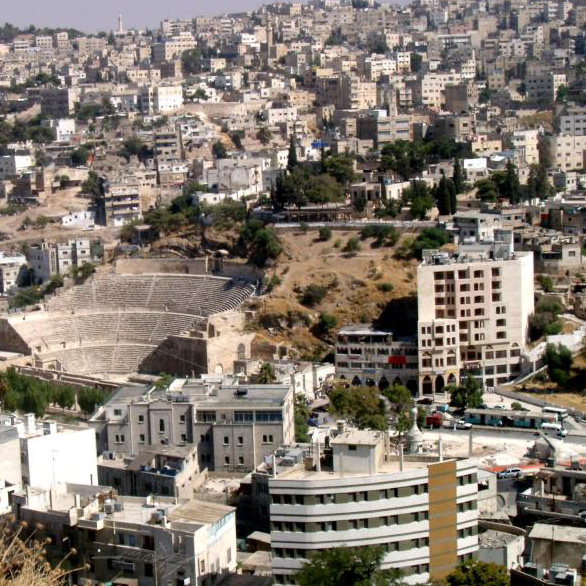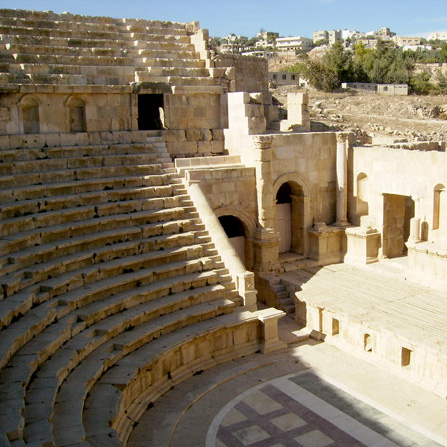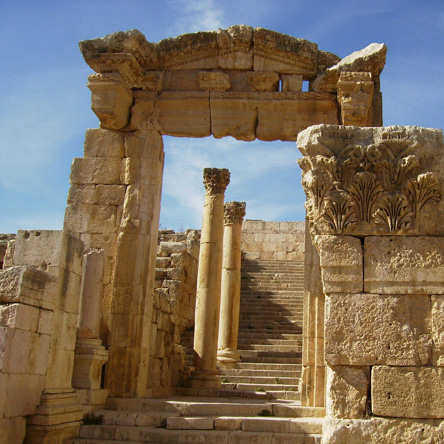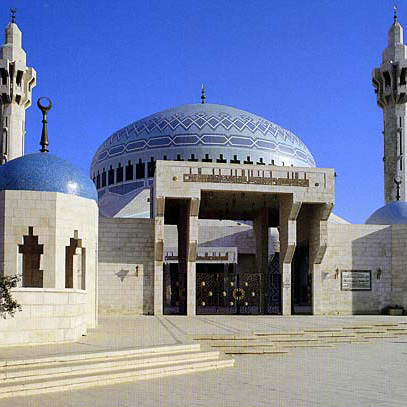King entrusts Bakhit to form new government
By Hani Hazaimeh and Emad Abdul Rahman
AMMAN - His Majesty King Abdullah on Tuesday entrusted Marouf Bakhit to form a new government tasked with realising “genuine political and economic reforms”, a Royal Court statement said.
Bakhit succeeded outgoing prime minister Samir Rifai whose resignation was accepted by the King yesterday, the Royal Court said.
The prime minister-designate said he needs three to four days to complete consultations and announce the makeup of his Cabinet.
In Tuesday’s Letter of Designation, King Abdullah said the new government should “take practical, speedy and tangible steps to launch real political reform”, to achieve comprehensive modernisation and development.
When the envisioned reforms become a fact on the ground, the Kingdom “will move ahead with confident strides to boost democracy and continue with the development process to open broad prospects for the Jordanian people and ensure them a decent living”, the King added.
The King singled out a new elections law, more involvement by civil society institutions in public life, freedom of expression, more effective role of youths and strengthening the economy’s competitiveness as the major tasks of the new government.
In the letter, the King acknowledged that the reform process has been flawed and faced hindrances.
“The drive towards reform has suffered from many shortcomings, which were the result of fear of change by some, who sought to safeguard their interests, and from reluctance to take decisions by many of those assigned responsibility, in addition to the appeasement policies which have worked to serve their private interests at the expense of the interests of the public”.
To achieve the desired goals, the King directed Bakhit to carry out a “comprehensive assessment process” and, accordingly, make the necessary changes to legislation regulating political and civil action and public freedoms.
The Elections Law, which represents the “main pillar of political development”, is foremost among these pieces of legislation, the King said.
They also include the laws governing political parties, public rallies, municipalities, press and publications, the right to access information, the King noted.
His Majesty requested Bakhit to forward to him his recommendations regarding a “comprehensive national dialogue with a clear agenda, engaging the various components of the society to reach consensus over a new elections law”.
The King expected the new Cabinet to draft an elections law that is prone to foster the “collective national identity” and contribute to enhancing the work of political parties, which, he said, should be competing to serve citizens and the country on the basis of tangible platforms.
The King underscored the importance of education reform to empower youths, through developing schools’ curricula and improving the school environment and addressing teachers’ needs.
He called for a comprehensive review of the university and higher education management systems to guarantee that universities teach creative thinking, foster the values of openness and pluralism and curb violence.
In this regard, the King emphasised the need for policies that can end the youths’ frustration, resulting from the absence of equal opportunities and the spread of favouritism and wasta.
On the economy, His Majesty said the new government should continue to work within the framework of the economic reform policy, through programmes and plans that ensure the best possible performance of the national economy.
He also stressed the importance of a true partnership between the public and private sectors and a fair distribution of development gains, besides strengthening public institutions to combat all forms of corruption.
The King emphasised the importance of safeguarding the country’s security and stability through implementing social justice and fostering the rule of the law.
He also highlighted the role of the Jordan Armed Forces and the need to continue supporting the army and its personnel.
The King also directed Bakhit to build on the programmes included in the National Agenda and introducing necessary amendments, besides observing the directives set in the Letters of Designation addressed to the two previous governments.
He also emphasised the role of the legislative authority and the significance of cooperation between the Senate and the Lower House, to work independently and also complement each other.
“The meetings and discussions [to form a new government] will need three to four days, and will include all the country’s segments and forces,” prime minister-designate Bakhit said in remarks to Al Rai daily.
Bakhit noted during a meeting with President of the Jordan Press Association and Al Rai Chief Editor Abdul Wahab Zgheilat that selecting ministers will take into account their ability to implement government policies, especially in the fields of political reform and comprehensive development.
“This government will have fighting corruption as its top priority to preserve justice and the citizens’ faith in the country’s institutions and capabilities,” he said.
He announced the government’s determination to “open files for all to see”, pledging that there will be no “immune” cases “especially since the political will is clear and firm in this regard”.
Bakhit said suspicious cases will be investigated “whether they are financial or administrative”, noting that he will start with the cases that were raised “during my premiership” in 2007.
He called for joint efforts of all powers and basing the partnership with Parliament on the tenets of the Constitution, especially in such a critical and vital phase.
The premier-designate also called for a complementary relationship with the Jordanian media in all its forms and with civil society institutions, built on trust.
Officials close to the consultations under way said that Bakhit might keep some ministers from Rifai’s Cabinet and appoint “figures with history as political party and professional associations leaders”.
In a separate letter, King Abdullah thanked Rifai and his team for the efforts they made in shouldering their responsibilities.
The King said Rifai and his ministers were dedicated to implementing the Royal directives in the Letter of Designation through transparent work plans.
He praised the outgoing Cabinet’s achievements in limiting the budget deficit, launching constructive projects, holding parliamentary elections, and developing an institutional structure to protect society from corruption.
Rifai yesterday sent a reply letter to King Abdullah, in which he extended thanks for his confidence.
In the letter, Rifai emphasised the economic hardships that his government had to deal with.
During his one year as prime minister, Rifai’s government managed to cut down public expenditure to reduce the budget deficit, but the government faced criticism over political and social reform.
News
23.08.2021
Meeting with King Abdullah II of Jordan
12.06.2019
Cooperation Agreement Signed in Hashemite Kingdom of Jordan
Russian-Arabic Business Council
Всех заинтересованных в установлении и развитии сотрудничества с деловыми кругами стран Арабского Востока приглашаем обратиться в Российско-Арабский Деловой Совет по адресу:
109012 г. Москва, ул.Ильинка, 5/2
тел./факс + 7 (495) 929-02-55
тел. + 7 (495) 929-03-13/15/16
эл.почта: rads@tpprf.ru
сайт: www.rusarabbc.ru







